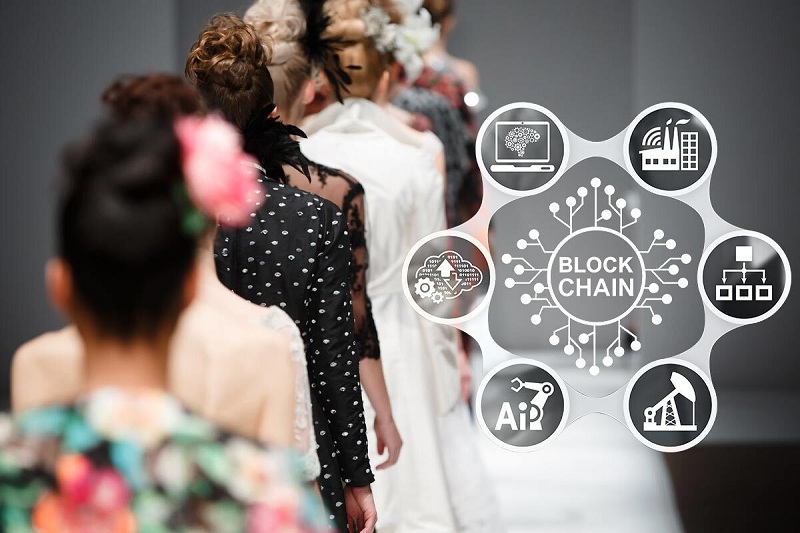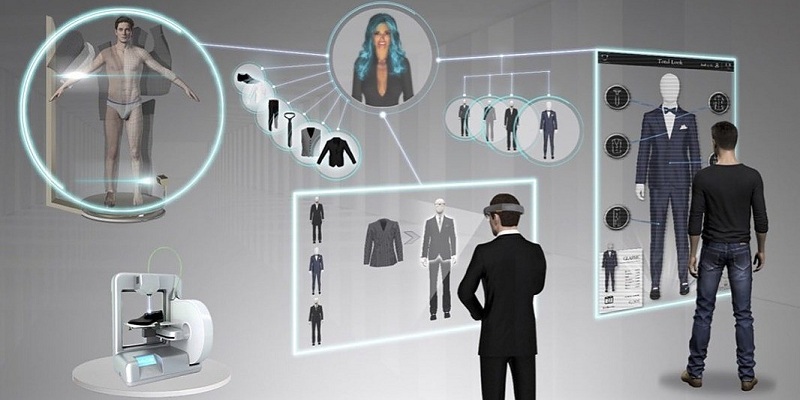Blockchain Revolution: Reshaping Industries from Finance to Fashion
Imagine your bank and shopping experience transformed. That’s the impact of blockchain on different industries. It’s not just talk; it’s happening. From how we handle money to the way clothes reach your closet, blockchain changes everything. This tech isn’t staying put in finance. It’s making waves in healthcare, reshaping how we protect patient data, ensuring drug safety. Even farmers and retailers are linking up differently, tracking food from seed to store. Houses and degrees? They’ve got a blockchain rewrite too. It’s a trust makeover for transactions across the board. Buckle up; let’s see how blockchain is rewriting the industry rulebook.
Pioneering Financial Transformation through Blockchain
Revolutionizing Banking and Payment Systems
Disrupting traditional banking infrastructures
Blockchain is shaking up how we bank. It’s changing the game for everyone, from big banks to us regular folks. Why? Because it cuts out the middleman. That means we can say goodbye to the long wait times and hello to faster, safer money moves. No more waiting days for a check to clear. With blockchain, money can zip from person to person, quick and easy.
Facilitating efficient cross-border transactions
Ever sent money to someone far away? It can be slow and costly. But with blockchain, sending cash across borders gets much quicker, and it doesn’t hurt your wallet as much. It’s like sending an email instead of mailing a letter – fast, simple, and it gets there in a snap.
Reinventing Finance Industry Infrastructure
The advent of smart contracts in financial services
Think of smart contracts like a vending machine deal. You pick what you want, pay up, and get your item, no one else needed. Now, apply that to banking. You make a deal, and blockchain makes sure it happens, without anyone else stepping in. It’s trusty and it keeps things straight, so nobody gets the short end of the stick.
Enhancing fraud reduction and transactional security
Nobody likes being tricked, especially with money. Blockchain helps stop fraudsters in their tracks. It’s a digital ledger that’s really tough to mess with. Once a transaction is in, it’s in for good. It means you can trust that what you see is what you get, and your hard-earned cash stays safe and sound.
Advancing the Healthcare and Pharmaceutical Industries
Securing Sensitive Patient Data
Let’s talk about keeping health info safe. Doctors and nurses need to know our health history. Yet, they must keep this info secure. Blockchain is a champ at this. It guards our health details like a pro. This tech fits right in with health rules and laws. It’s all about private and reliable patient data storage.
Blockchain makes sure only the right eyes see your info. Think of blockchain as a strong vault that’s tough to crack. This vault keeps track of who sees what. It changes how we protect patient info for the better.
Streamlining Pharmaceutical Processes
Now, let’s explore making meds safer. Blockchain is a game-changer for medicine safety. It keeps a close eye on how drugs move from making to taking. This matters because we must know meds are safe and real. Blockchain helps us track every step.
Also, blockchain speeds up medical studies. How? By organizing and sharing data fast and well. This is big for finding new cures quicker. It’s about making sure drugs are tracked, safe, and get to us fast when we need them. Blockchain helps make sure no one waits too long for important medicine.
Streamlining Supply Chains from Agriculture to Retail
Enhancing Transparency in Agriculture and Food Safety
Traceability from farm to table
Blockchain means no secrets in our food’s journey. This tech tracks every step from the farm to your plate. For instance, if you’re biting into an apple, blockchain can tell you where it was grown. It can even show what farm it came from. This keeps our food safe, and it helps farms show how they care for their crops.
Advanced monitoring methods for food safety
Now, regarding food safety, blockchain steps in again. It keeps a close watch. From the moment food leaves the farm, every temp check and safety inspection is recorded. This makes sure our food is fresh and safe to eat. So, when there is a problem, we find it fast and fix it.
Refining Retail Operations with Blockchain
Immutable record-keeping for product authenticity
Imagine buying a new bag. You want to know it’s real, not fake. Blockchain changes the game here. It keeps records that no one can change. So, you can check where and how your bag was made. Real or fake? Now it’s easy to tell.
Optimizing inventory management and logistics
What about keeping things in stock? With blockchain, stores manage their goods better. No more guesswork. They know what’s selling, and what to order more of. Plus, shipping gets smarter, as blockchain tells each package where to go. This means less waiting for what you want.
In short, blockchain makes things clear and simple, from farm to shop. It helps us trust our food and the things we buy. With blockchain, we see the full story, no tricks or confusion. This tech is our ally for safer, better shopping and eating.
Transforming the Real Estate and Education Sectors
Real Estate Transactions and Property Management
Buying a house can be tricky. Is the seller really the owner? What hidden flaws could surprise you later?
Blockchain fixes these issues.
How? By storing records of property ownership securely. This way, it’s clear who owns what. No one can change these records without everyone knowing.
If someone says, “I own this house,” blockchain can prove it. It’s like a shared list that everyone trusts.
Now, smart contracts. These are not contracts that make you smart. But they are clever. Think about renting an apartment. Usually, you sign a paper contract, which can be slow and complicated.
Smart contracts run on blockchain and self-execute. You and the landlord agree on terms. When you pay the rent, the smart contract knows. It automatically lets you into the apartment.
The blockchain records every step. This stops fraud. No lost papers. No “He said, she said.”
Innovating the Education System
School can be a maze of records. What class did you take? What grade did you make? Who knows if it’s all correct?
Blockchain enters the scene. With it, your academic records are safe and sound. If you finished Algebra, blockchain proves it. No mix-ups.
Colleges can quickly see your grades. They’re sure it’s true because blockchain does not lie.
And certificates? Huge pain to get sometimes. With blockchain, your diploma is just a click away. Plus, you can’t lose it or fake it.
Students can smile more and worry less. Blockchain keeps their hard work safe for the world to see.
With each grade and diploma on blockchain, everything is clear. You did the work. You earned your rank.
Blockchain isn’t just tech talk. It’s a real tool making life easier. It helps buy homes safely and keeps school records straight.
Real estate and education are just starting points. Imagine every piece of important information protected and proved by blockchain. That’s a future worth building.
We’ve just explored how blockchain is reshaping our world, from finance to farming. In banking, it’s breaking old patterns and making money moves across borders a breeze. In finance, smart contracts and tight security are the game-changers. Blockchain keeps healthcare data safe and streamlines drug development in ways we’ve never seen before. It’s also cleaning up supply chains, ensuring the food on our table is safe and our retail systems are top-notch. Real estate deals now happen with clear records, and educational achievements are set in digital stone.
Think about it—all these sectors touched by one powerful technology. It’s not just about the tech; it’s the trust and efficiency it brings. As an expert, I see a bright future where blockchain defines reliability. Understand this: blockchain isn’t a buzzword—it’s the bedrock of a bold, transparent, and secure tomorrow. Let’s embrace the change and be part of this exciting journey.
Q&A :
How is blockchain technology transforming various industry sectors?
Blockchain technology is revolutionizing multiple industries by enhancing transparency, security, and efficiency. In finance, it’s creating new possibilities for secure, real-time transactions and reducing fraud. The supply chain sector benefits from improved traceability and authenticity verification. Healthcare can better protect patient data and ensure its integrity, while the gaming industry explores new models for ownership and value transfer. Blockchain’s decentralized nature means its impact is felt across most industries looking to optimize and secure their operations.
What potential does blockchain hold for the manufacturing industry?
In manufacturing, blockchain offers a promising future for supply chain management, quality assurance, and counterfeit prevention. By introducing greater traceability and verification processes, manufacturers can ensure the authenticity of components and products. Additionally, blockchain can streamline operations by connecting different segments of the supply chain on a transparent ledger, thereby improving inventory management, reducing costs, and shortening lead times. The technology can also securely store and share product lifecycle data, fostering trust among manufacturers, suppliers, and customers.
How will blockchain influence the future of the finance and banking sectors?
Blockchain’s influence on finance and banking is profound, with potential to disrupt traditional banking models. It could introduce a more efficient infrastructure for payments, reducing the time and cost of cross-border transactions. The immutable nature of blockchain can also help prevent fraud and enhance regulatory compliance. Smart contracts, automated by blockchain, bring forth a new level of transparency and enforceability in financial dealings. Decentralized finance (DeFi) platforms, built on blockchain, could democratize access to financial services, fostering inclusivity, and innovation.
Can blockchain provide significant benefits to the healthcare industry?
Yes, blockchain can significantly benefit healthcare by providing a secure platform for storing and sharing medical records, maintaining the integrity and privacy of patient data. It can help create a unified, immutable database accessible by authorized personnel, which can improve diagnosis and treatment coordination. Blockchain can also streamline the drug supply chain, enabling the tracking of pharmaceuticals from production to delivery, reducing the risk of counterfeit drugs entering the market. Moreover, it facilitates more transparent and efficient handling of medical billing and insurance claims, reducing the potential for errors and fraud.
What are the challenges and limitations of blockchain implementation in different industries?
While blockchain holds great promise, its implementation comes with challenges and limitations. Technical barriers like scalability and interoperability must be overcome to integrate blockchain with existing systems. There’s also a significant energy consumption issue associated with certain blockchain operations, such as Bitcoin mining. Regulatory uncertainties pose another challenge, as policymakers grapple with how to govern and regulate the technology. The need for a skilled workforce trained in blockchain technology is also growing. Additionally, convincing stakeholders to adopt a decentralized system and addressing concerns about privacy remain persistent challenges for broader blockchain adoption across industries.


